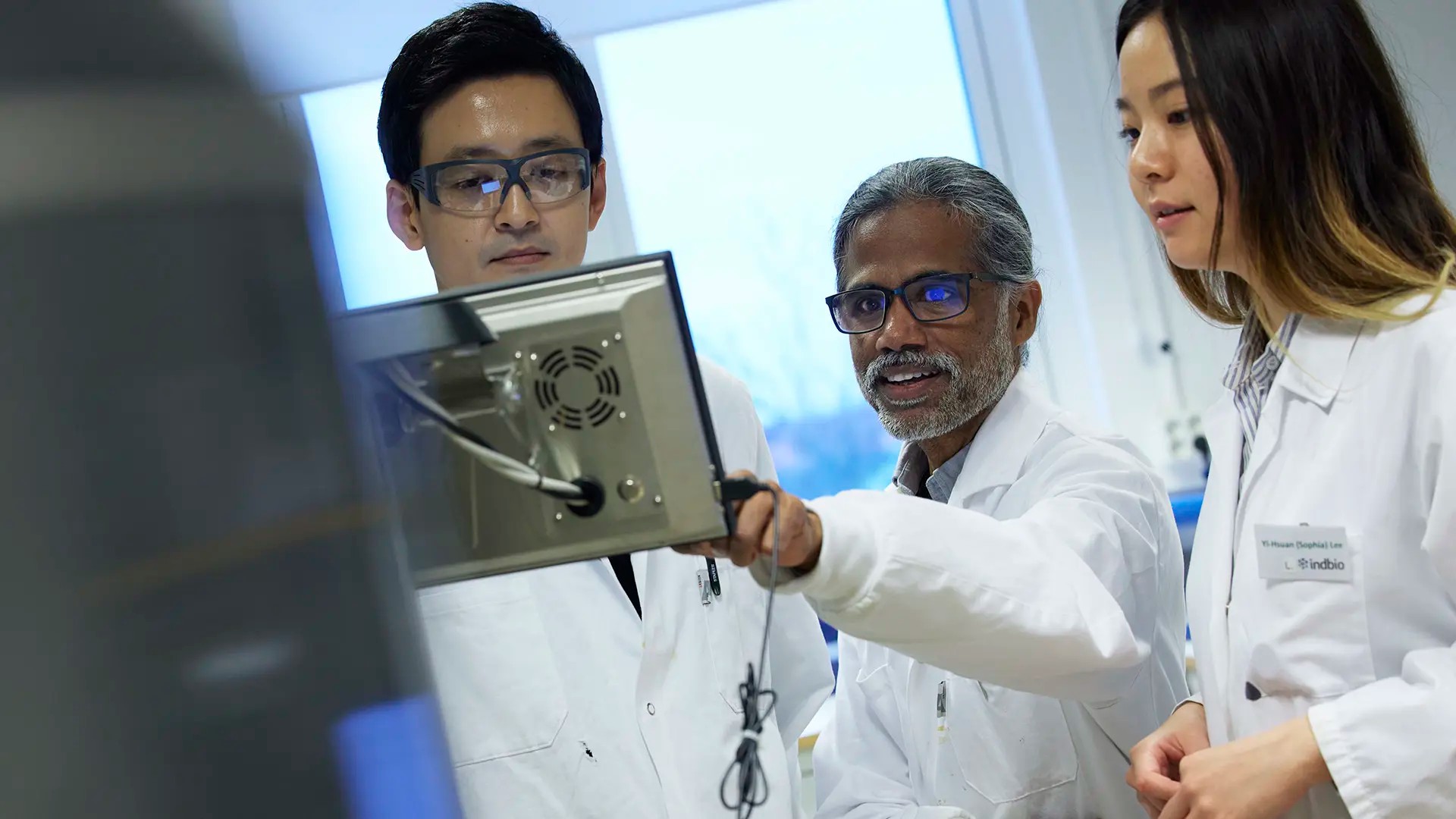
The research performed at IndBio is diverse, and a majority of the projects fall within these four topics:
Biorefineries
Biorefineries are process concepts that utilise biomass as a raw material in an integrated process design, where the aim is to optimise both material and energy balances while producing different products. Our role is to develop biochemical conversion steps that can be part of biorefinery concepts and to understand how the biochemical conversions interact with other steps in the biorefinery.
Biomass is the starting material of the process, and it can be converted into syngas (through gasification), sugars (through physical, chemical, and enzymatic degradation) and biomass polymers (through physical, chemical, and enzymatic processing) as products or as intermediates for further biochemical conversion. We are active in all three principal conversion pathways.
Research groups
Enzymes for biomass deconstruction and modification
Enzymes are the biological catalysts that synthesize and break down the complex molecules that Enzymes are the biological catalysts that synthesize and break down the complex molecules that build up biomass in nature. Our research mainly focuses on carbohydrate-active enzymes that can be used to deconstruct polysaccharides which are key components in biomass, and we have projects with both fundamental and applied focus.
A major goal of our research is to discover and in detail characterize new enzymes, and to find relevant uses for them. This includes biochemical studies, structure-function analyses, and development of novel enzyme cocktails for biomass hydrolysis.
We also isolate and characterize new microbial species both to understand their enzymatic strategies and to harness the enzymes they encode.
IndBio researchers are involved in the national Wallenberg Wood Science Center – WWSC. This large multi-university network includes researchers in chemistry, biotechnology, physics, and material science, and the overall aim is to develop new materials from wood.
Research groups
Industrial cell factories
Cell factories are microorganisms that produce useful products. To be industrially feasible they must be highly efficient and robust. Our research in this field aims to ensure high productivities and yields for both traditional and new fermentation products. A lot of our work is done with baker’s yeast, Saccharomyces cerevisiae, as production host.
Our goals include increasing its substrate range, expanding its ability to make new products, and improving its overall robustness. We also characterize and develop non-conventional yeasts, filamentous fungi and bacteria as production hosts.
Our methodology includes development and use of genetic tools such as biosensors, accelerating the design-build-test-learn cycle, standardizing strain engineering strategies, and evaluating strains in a high-throughput manner.
Various -omics techniques, CRISPR/Cas9 based genome editing technologies, and CRISPRi/a based alteration of gene transcription constitute core activities within our research.
Research groups
Robust bioprocesses
The design of a production process can greatly affect the performance of a microorganism, including productivities, product yields and product titres. This is especially the case when dealing with complex feedstocks such as residues from agriculture and forestry. We study fermentation processes for biobased production of fuels, chemicals, and living products such as dairy starter cultures and probiotics.
Our goals include development of bioprocess design using advanced feed schemes with integrated yeast production and adaptation, to enable high gravity fermentation of various lignocellulosic materials.
We also aim at identifying biomarkers for robustness in various microorganisms, and design the bioprocesses to promote such robustness.
We perform mathematical modelling for designing and optimizing operating conditions and for linking knowledge on microbial genomics, metabolism, and physiology with process development. In collaborative projects, we address larger technoeconomic and life cycle environmental characteristics of biobased processes.